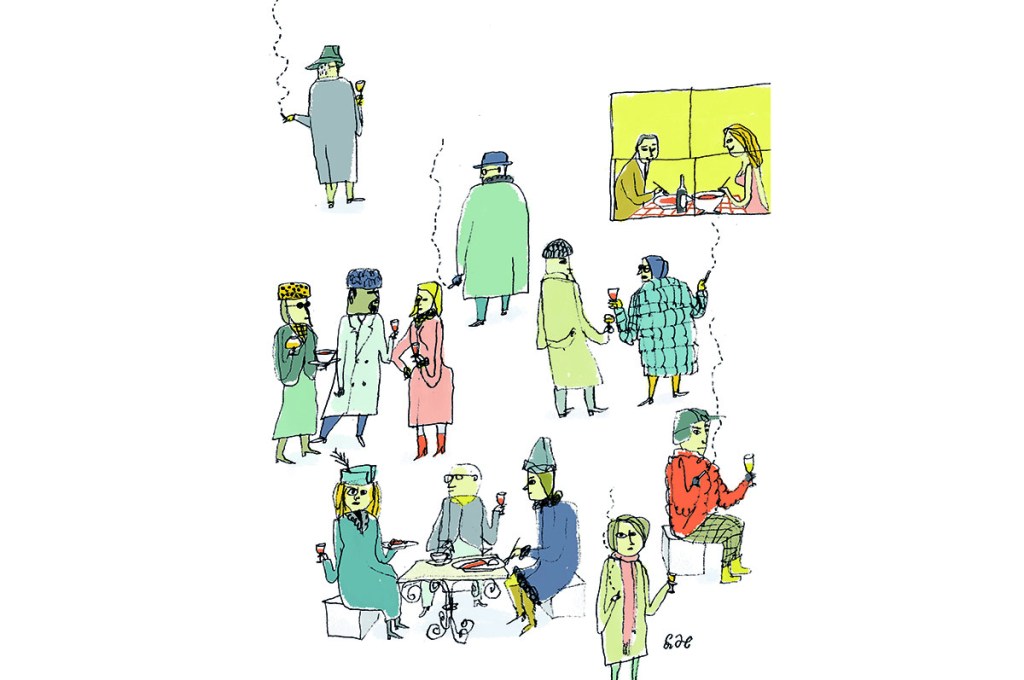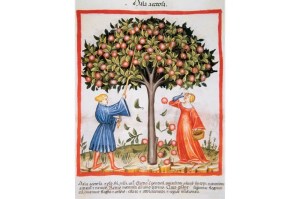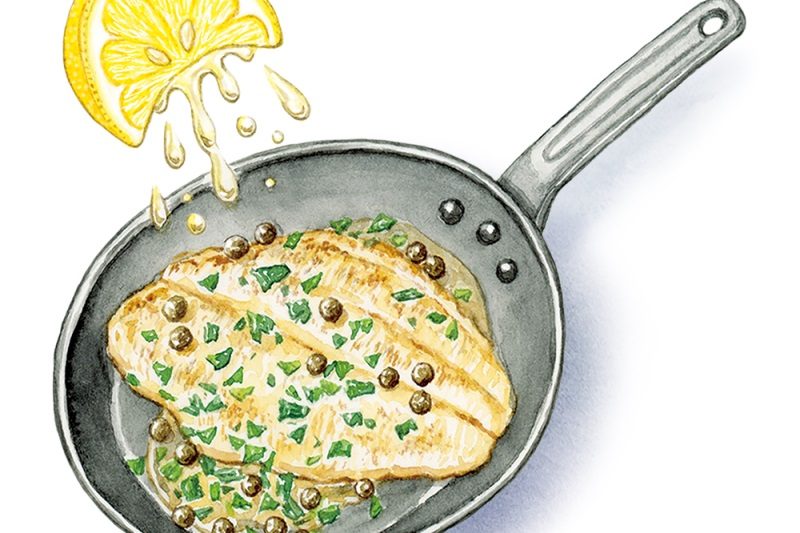Tennis — as the New England poet Robert Frost remarked in defense of formal verse — is more fun with a net. Creativity does indeed flourish within constraints. Soviet censorship brought about samizdat. Prohibition brought about bathtub gin and any number of fabulous cocktails designed to mask its unsubtle notes of paint thinner. The greatest human spirits would view the new era of show-your-papers dining not as a hardship, but as an opportunity.
In our brave new world, some don’t mind handing over papers in exchange for a mess of restaurant-prepped pottage. And yet there are ancien régime sticklers for propriety who think that the use of QR codes to gain access to food indoors is not quite comme il faut (if you’ll pardon their French). In their old-fashioned way, they feel that corporal works of mercy such as feeding the hungry ought not to be made conditional on the recipient’s qualifications as bien-pensant (meaning “right-thinking,” for those French class is no more). Such are the principled non-paper-showers. Ladies and gentlemen, take note. These traditionalists are the great new-wave creatives, the thinkers outside the box, the designers and fashioners of the al fresco night out on the town (since indoor dining is denied to them on the basis of conscientious objection).
Al fresco takes on a whole new meaning in January, and this is why the first rule of alternative dining out is to dress for the weather, not forgetting warm footwear. The extremities are precious and must not be sacrificed to frostbite. Fur, genuine or faux, adds a nice symbolic touch to the wardrobe, reminding us of the time in which North Americans had to hunt, trap and fish to survive the winter months. Restaurants and bars were a rarity in many areas for much of our history, and our pioneering forefathers survived nonetheless (some of them, anyway). Is the indefatigable frontier spirit dead? It is not. Just ask anybody whose anthems still play on the small-town rock stations: “I’m a cowboy/ On a steel horse I ride,/ And I’m wanted, wanted/ Dead or alive.”
Once you’re insulated appropriately against the weather, it’s time to whisk your date out on the town. The truly principled consider it bending the rules to take food out from a place that asks for papers, so there are only three options. One: find what you might call a speakeasy, an establishment that, while putting up a good show of giving unto Caesar that which Caesar says is his, has not entirely extinguished the lighted lamp beside the golden door, discreetly offering heat, hospitality, food and drink to the huddled masses yearning to breathe free. If such a speakeasy is to be found, the principled view it as practically a social obligation to go there and tip heavily, however oversalted the French onion soup may be. This is not a time for carping over condiments.
Should no gleaming Lady Liberty welcome you into a local establishment, you must rely upon that huntin’-and-fishin’ resourcefulness that so characterized our doughty ancestors. Remember the Alamo, pull your coonskin hat a little lower over your forehead, and forge onward. Though dried sausage, baguette, and a bottle of wine in a paper bag are probably not what Davy Crockett tucked into the pockets of his buckskins for a meal on the road, I would personally favor them over stewed squirrel, which early childhood propaganda leads me to believe he frequently enjoyed.
Those blessed with warmer climates will have no difficulty, even in January, in bringing this simple yet Parisian meal to a local beauty spot and enjoying it in folding chairs. For a touch of class, add a collapsible card table, a checked cloth, a candle-powered lantern, fruit and cheese. If you live in a northern region, you may prefer to remain within your heated vehicle for the course of the meal. But this is a bit half-hearted in my view. For one thing, it’s not really dining out. Besides, you’ll get crumbs all through your car, and the local constabulary may have strong opinions on the propriety of an open bottle of wine in one’s running vehicle.
No, what I would propose in a northern region is to improvise a kitchen on a frozen lake. Ice-fishing huts are extremely popular in northern winters, and people use wood stoves, portable heaters and all manner of gear in order to spend as much time as possible on the ice. Bring your barbecue and cook up a feast. Steak, mushrooms, potatoes in their jackets — how does that sound, with the chilly air and all the work of hauling gear out there to help you work up an appetite? Or, if you’re a real foodie, perhaps a bit of freshly caught lake trout from under the ice (hard to source food more locally than from immediately beneath your feet!), grilled, drizzled with balsamic reduction and served with green beans in melted butter alongside a bottle of Sancerre.
To end the evening romantically under the stars, simply haul the camp chairs outside the shelter and get an eyeful of the Milky Way, Champagne chilling in a nearby snowbank (or cups of hot chocolate, warmed on propane, cradled in your mittened hands). With a little imagination, you might even think you’ve caught a glimpse of the Northern Lights. Just make sure you get the advice of the local ice experts before planning the night — you don’t want to end the evening watching your barbecue drift away on an ice floe.
For a true fine dining experience, however, you need the atmosphere created by other revelers. Convince a few friends to emulate your efforts: a smattering of fishing huts in the same area, delicious aromas arising from each grill, friendly shouts across the ice — “Hey! We’re a bit low on flaked sea salt, can anyone spare us a pinch?” — roaring snowmobiles zooming in the distance, and the voice of your childhood friend Wilbur three fishing huts away reciting “The Cremation of Sam McGee.” What more could you want? It’s not the Café de la Paix, but the Café sans Papiers is way cooler anyhow. (Obviously. It’s on ice.)
This article was originally published in The Spectator’s January 2022 World edition.

























